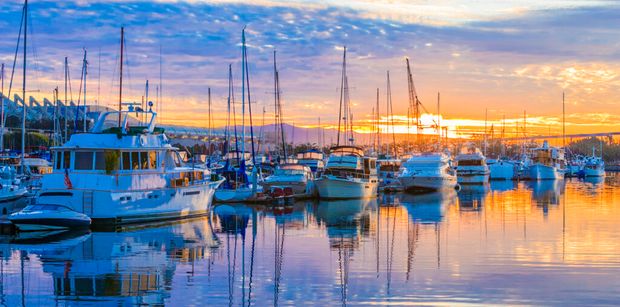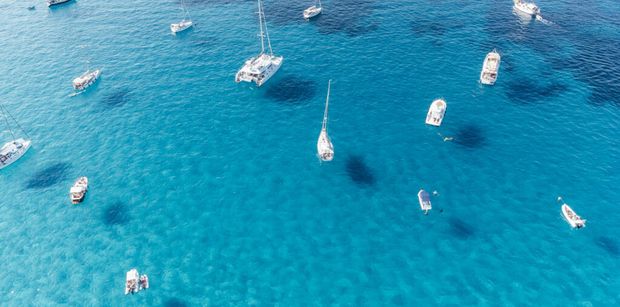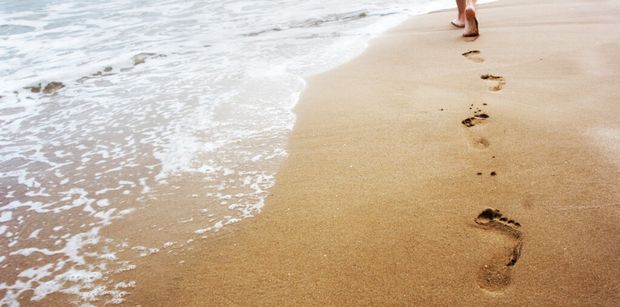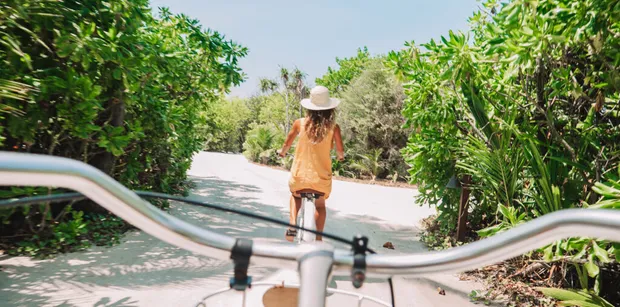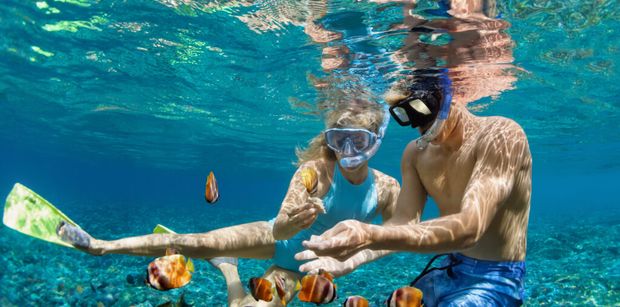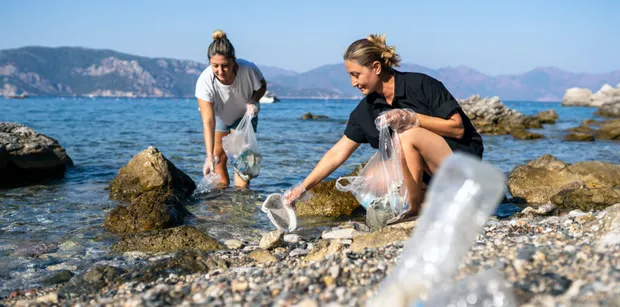The Mediterranean remains one of our favorite boating destinations. However, this cruising area is suffering as the world faces mounting pressures from over-tourism and environmental impacts. With the summer season fast approaching, boaters can enjoy more sustainable yachting adventures across the Mediterranean.
Boatbookings Prioritizing Sustainability
At Boatbookings, we always advocate for more responsible boating. Firstly, we offer a range of greener crewed catamarans, which have less impact on our seas. When organizing a boat charter in the Mediterranean, we focus on facilitating more sustainable practices onboard through your preference sheet, such as requesting local and seasonal produce and reducing the amount of single-use plastics.
The Mediterranean is home to some of the world’s best Marine Protected Areas (MPAs), teeming with vibrant marine life that we love to snorkel and dive. While boating in these areas, there are a range of procedures you can follow to not disrupt the ecosystems. Meanwhile, on land, when you are visiting these destinations, we encourage engaging with the local communities when purchasing and getting involved in responsible activities.
We have put together a list of the top 5 Mediterranean destinations that champion sustianability:
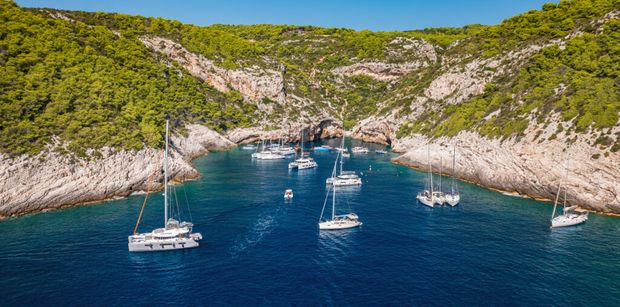
1. French Riviera
The French Riviera is a premier cruising destination, and for good reason. From St Tropez to Monaco, the region is full of glamourous destinations, idyllic bays, and prestigious events. However, due to its popularity, there has been some negative impact of yachting. Today, the anchoring of yachts along the French Riviera is strictly regulated to protect the Posidonia seagrass. The French maritime authorities PREMAR have implemented increased anchoring rules in these areas to protect the ecosystem.
In addition to anchoring regulations, all of the ports along the French Riviera have implemented stringent policies to keep the marina waters clean. You can no longer wash boat oils, wastewaters, and other pollutants into the sea. As an example, Cannes has implemented the following requirements on all ships in the Cannes waters:
- The use of fuel with 0.1% sulfur content
- A ban on incinerating waste on board upon entering the compulsory ‘piloting area’
- The establishment of a tendering process that takes into account the environment
- A ban on discharging wastewater, even treated wastewater, and water from fume washing systems in the piloting and mooring areas;
- The obligation to bypass the ‘Posidonia meadows’ during maneuvers and anchoring;
- the promotion of sustainability initiatives among operators carrying cruise passengers.
2. The Ionian Islands
For island-hopping itineraries, Greece is a perfect destination. The Ionian Islands lie off the country’s west coast in the Ionian Sea. An initiative aimed at promoting sustainable tourism and environment conservation throughout the islands is the Ionian Environment Foundation. Focussing on this area, the program distributes sustainable sailing packs showcasing how boaters can avoid negative impacts when sailing these islands.
3. Mallorca
The Save the Med Foundation, based in Mallorca, enables the Balearic Sea to recover its rich biodiversity. Through marine conservation, research, educational outreach, and advocating for new MPAs, this organization showcases these islands as a hub for innovative initiatives to inspire other regions. One particular priority for Save the Med is tackling plastic pollution.
4. Sicily
A prominent issue within marine conservation is the problem of discarded fishing nets. The Italian island of Sicily is working to combat this while protecting and preserving the island’s nature through the Sicily Environment Fund. One of its projects is the ‘Ghost Net Recovery’ initiative in Ustica, which collects and recycles discarded fishing nets.
5. Croatia
Croatia is another famous island-hopping sailing destination, especially for our crewed charter catamarans. The Association for Nature, Environment and Sustainable Development (SUNCE) safeguards the country’s marine ecosystems. One project is the ‘Marine Litter Free Dalmation Islands Project,’ which empowers local communities to gather data on marine debris distribution and develop effective waste management systems through active engagement.
The Mediterranean summer season is fast approaching; let’s protect and preserve these destinations, reducing our impact. If you still need to arrange this summer’s Mediterranean greener crewed charter catamarans, contact one of the Boatbookings team today.

